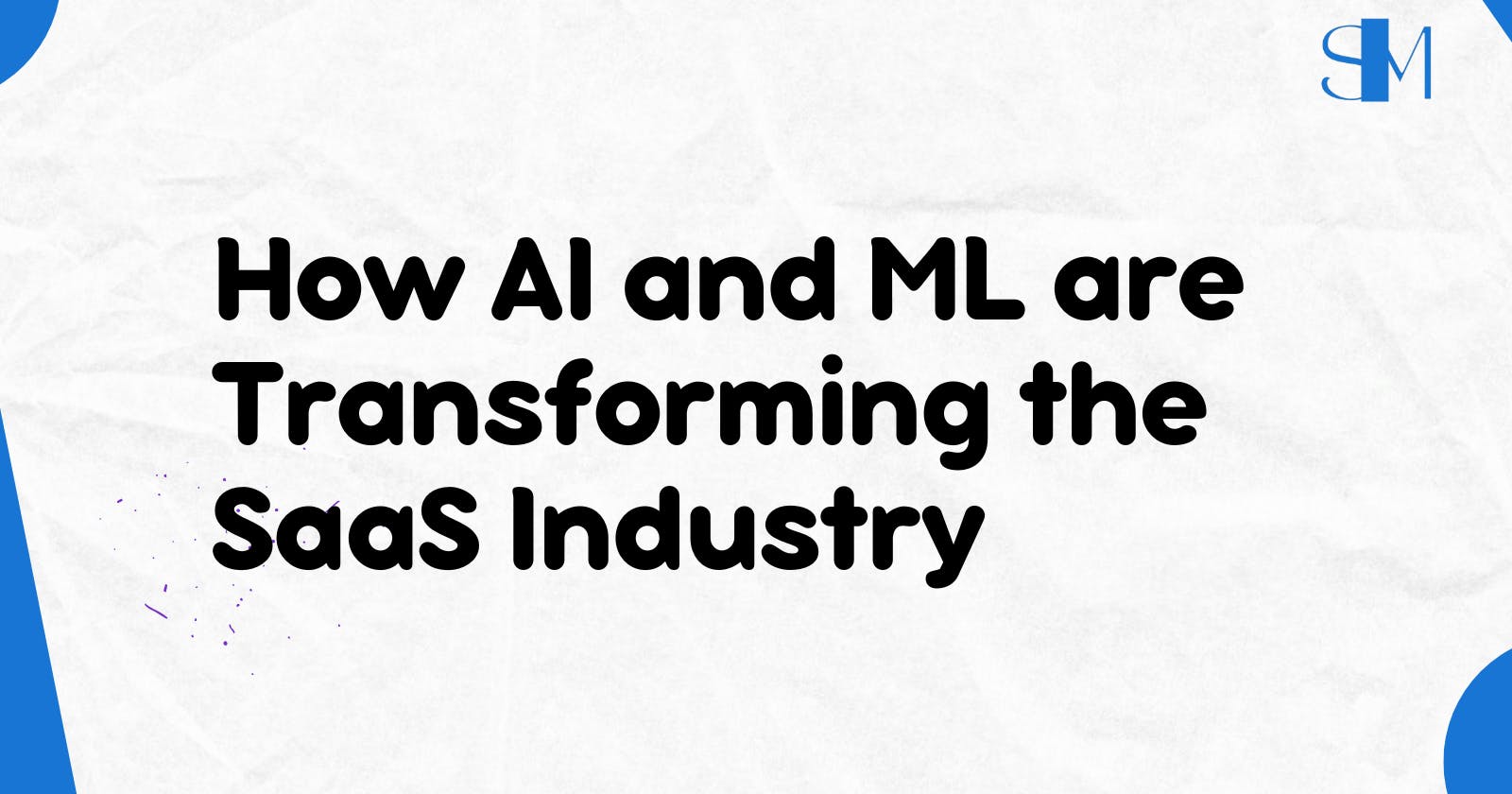Introduction
The integration of artificial intelligence (AI) and machine learning (ML) technologies has brought about a paradigm shift in the Software as a Service (SaaS) industry, revolutionizing traditional processes and enhancing the overall user experience. This article explores the multifaceted impact of AI and ML on SaaS, highlighting their role in automation, personalization, and predictive analytics.
Automating Routine Tasks with AI
SaaS platforms are increasingly relying on AI algorithms to automate repetitive tasks, enabling organizations to streamline workflows and improve operational efficiency. By leveraging techniques such as natural language processing (NLP) and computer vision, AI-driven tools can analyze vast amounts of data, extract valuable insights, and execute routine tasks with precision and speed. This automation not only reduces manual intervention but also frees up valuable human resources to focus on more strategic initiatives, ultimately driving productivity and cost savings.
Personalization at Scale: The Power of ML in SaaS
ML algorithms play a pivotal role in delivering personalized user experiences within SaaS applications, catering to the unique needs and preferences of individual users. By analyzing user behavior, preferences, and historical data, ML models can dynamically adjust content, features, and recommendations in real-time, thereby enhancing customer engagement and satisfaction. Whether it's personalized product recommendations, tailored content delivery, or adaptive user interfaces, ML-powered personalization enables SaaS providers to foster deeper connections with their users and drive long-term loyalty.
Enhancing Efficiency through Predictive Analytics
AI-driven predictive analytics is revolutionizing how SaaS platforms anticipate user needs, optimize resource allocation, and facilitate data-driven decision-making. By analyzing historical data patterns and trends, predictive models can forecast future outcomes, identify potential risks, and recommend optimal courses of action. From demand forecasting and inventory management to customer churn prediction and revenue optimization, predictive analytics empowers SaaS providers to proactively address challenges, seize opportunities, and stay ahead of the competition.
Leading SaaS Companies Embracing AI and ML
Industry-leading SaaS companies are harnessing the power of AI and ML to drive innovation and deliver tangible business results. Case studies of organizations such as Salesforce, Adobe, and Slack showcase how these companies are leveraging AI and ML across various functions, including sales, marketing, customer service, and collaboration. Whether it's Salesforce's Einstein AI for predictive analytics or Slack's machine learning-powered chatbots, these examples demonstrate the transformative potential of AI and ML in driving efficiency, scalability, and customer value within the SaaS ecosystem.
Addressing Challenges and Seizing Opportunities
While the benefits of AI and ML in SaaS are undeniable, there are also significant challenges that must be addressed, including data privacy concerns, algorithmic bias mitigation, and talent acquisition strategies. SaaS providers must prioritize ethical considerations and adopt robust data governance frameworks to ensure the responsible and transparent use of AI technologies. Additionally, investing in ongoing training and development programs is crucial to cultivating a skilled workforce capable of leveraging AI and ML effectively.
Actionable Insights for SaaS Providers
For SaaS providers looking to capitalize on the transformative potential of AI and ML, adopting a strategic approach is essential. Key considerations include identifying areas ripe for automation, investing in data infrastructure and talent development, and fostering a culture of experimentation and innovation. By embracing AI and ML technologies thoughtfully and responsibly, SaaS providers can differentiate their offerings, drive sustainable growth, and deliver exceptional value to their customers in an increasingly competitive marketplace.
Conclusion
From automating routine tasks and personalizing user experiences to enhancing predictive analytics and driving strategic decision-making, AI and ML are reshaping the way SaaS providers operate and engage with their customers.
While the potential benefits of AI and ML are vast, SaaS providers must navigate challenges such as data privacy concerns, algorithmic bias, and talent acquisition to realize their full potential responsibly. By prioritizing ethical considerations, investing in robust data governance frameworks, and fostering a culture of continuous learning and development, SaaS companies can harness the transformative power of AI and ML to drive sustainable growth and deliver exceptional value to their customers.

